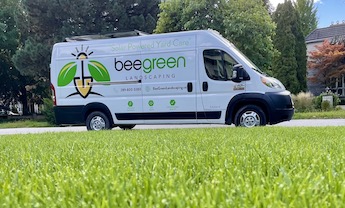Bees are buzzing their way into a crisis, and we must pull them back from the brink. These tiny workers play a colossal role in our ecosystem, pollinating plants that produce a third of our food. Yet, their numbers are dropping at an alarming rate, threatening global food security and biodiversity. You’ve likely heard the buzz about save the bees, but do you know why it’s so crucial? Beyond their role in producing honey, bees are pivotal in maintaining the balance of our ecosystems. Their decline signals a larger environmental issue that affects us all. It’s not just about saving bees; it’s about preserving our future.
Join the hive of supporters taking action to save the bees and protect these invaluable creatures. Understanding the challenges bees face is the first step towards making a difference. Let’s dive into what’s causing their decline and how you can contribute to their conservation.
Why Bees are in Crisis?
You might not realize it, but bees around the world are in a dire situation. Bee populations are declining at an alarming rate, and this spells trouble not just for these tiny pollinators but for humans and ecosystems as a whole. Several factors contribute to this crisis, each compounding the other, creating a challenging environment for bees to thrive.
Pesticide Exposure: One of the most significant threats to bee populations is the widespread use of pesticides in agriculture. Chemicals designed to protect crops from pests also harm beneficial insects like bees. When bees come into contact with these toxic substances while foraging, it can weaken their immune systems and even lead to death.
Habitat Loss: Urbanization and intensive farming practices have led to a drastic reduction in the natural habitats bees rely on for nesting and forage. With fewer wildflowers and natural spaces, bees have to travel longer distances for food, increasing their exposure to risks and decreasing their chances of survival.
Climate Change: Shifts in climate patterns affect the timing of plant flowering, which can be out of sync with bee lifecycles. This mismatch means bees may emerge to find that their primary food sources are not yet available or have already bloomed. Additionally, extreme weather events can directly impact bee populations.
Parasites and Disease: Bees are battling an array of parasites and diseases, with the Varroa mite being particularly devastating. This parasite attaches itself to the bee, weakening it and spreading viruses within the colony. Together with the other factors, diseases and parasites add another layer of stress on bee populations.
Table: Key Facts About Bee Decline
| Factor | Impact on Bees |
|---|---|
| Pesticide Exposure | Weakens immune systems |
| Habitat Loss | Reduces forage availability |
| Climate Change | Causes lifecycle mismatches |
| Parasites/Disease | Leads to colony collapse |
Understanding the reasons behind the bee crisis is crucial in taking steps to mitigate these threats. Your actions, no matter how small, can contribute to creating a safer environment for bees and saving them, helping ensure their survival and the continuation of the critical pollination services they provide.
The Importance of Bees in Our Ecosystem

Bees play a crucial role in maintaining the balance of our ecosystems and food production. As you explore the depths of their contribution, you’ll discover bees are not just small insects buzzing around flowers; they’re pivotal to sustaining life on Earth.
Pollination Power
At the core of their importance, bees are master pollinators. They help in the reproduction of many plants, including those that constitute a significant portion of human food crops. Approximately 70 out of the top 100 human food crops, which supply about 90% of the world’s nutrition, are pollinated by bees. This translates to one in every three bites of food you eat being directly or indirectly contributed to by bee pollination.
Biodiversity Champions
Beyond agriculture, bees also contribute to the rich diversity of life forms known as biodiversity. By pollinating a wide array of plants, they support the growth of new plants, which serve as habitats and food for enumerable other creatures. This promotes a healthy and vibrant ecosystem.
Economic Impact
The economic value that bees add to the global agriculture economy cannot be overstated. It’s estimated that bees contribute over $235 billion to $577 billion globally to food production annually. Without bees, many of the foods we take for granted could decrease in supply and increase in price, affecting global food security and economies.
Supporting Wild Plant Growth to Save the Bees
Another often overlooked contribution of bees is their role in growing and reproducing wild plants. Many plants rely on bees to spread their pollen, facilitating not only the plants’ survival but also providing food and shelter for wild animals.
Understanding bees’ multifaceted roles in our ecosystem underscores the need for concerted efforts to protect them. Everyone has a role to play in this mission, from simple garden planning that supports bee diets to advocating for policies that protect bee habitats.
Impact of Declining Bee Population

Bees are facing unprecedented challenges that threaten their existence and, by extension, the balance of our ecosystems. Pesticide exposure, habitat destruction, and climate change are the main culprits behind the sharp decline in bee populations worldwide. When you consider the pivotal role these insects play in pollination, the broader implications of their decline become starkly apparent. Without bees, the ability of many plants to reproduce is severely compromised, leading to decreased plant diversity and the loss of various plant species.
This decline in bee populations doesn’t just affect flora; it has a profound impact on fauna as well. Animals that rely on plants for food and habitat will find their survival chances dimming as plant availability dwindles. For example, numerous bird species that depend on seeds from plants pollinated by bees could see a significant drop in their food sources, potentially leading to a decrease in their populations as well.
Economically, the decline presents a grim picture. Consider the following data that reveals the financial impact of a world without bees:
| Impact Area | Annual Economic Loss |
|---|---|
| Agriculture | $235 billion – $577 billion |
| Wild Plant Growth | Significant, though unquantified |
| Biodiversity | Priceless |
As the bee populations continue to decrease, the costs to replicate their pollination work manually are astronomical. Moreover, the diversity of food available would decline, leading to a diet that is not only less interesting but potentially less nutritious.
To understand the gravity of this issue, it’s essential to grasp the breadth of the repercussions that a declining bee population carries. It’s not just about losing a species; it’s about losing the foundation upon which much of life on Earth depends. As you move through your day, consider the food you eat, the flowers you enjoy, and the wild landscapes that charm you – bees play a crucial part in all of these. Ensuring their survival is imperative, not just for their sake but for ours too.
Ways to Save The Bees and Support Conservation

Taking steps to support save the bees conservation is more crucial than ever. You have the power to make a difference through a few simple yet effective actions. Here are key ways you can contribute to safeguarding bees and, by extension, the ecosystems they support.
Plant Bee-Friendly Gardens
One of the easiest and most effective ways you can help bees is by planting a bee-friendly garden. Opt for native plants, as these will provide the best nutrition and support for your local bee populations. Consider a variety of plants that flower at different times of the year to offer a constant source of food. Key plants include lavender, foxgloves, and clover.
Avoid Pesticides
Pesticides are a major threat to bees, disrupting their ability to navigate and forage, and ultimately leading to their death. If you’re aiming for a thriving garden, opt for natural pest control methods. Introducing beneficial insects like ladybugs or employing physical barriers can protect your plants without harming bees.
Support Local Beekeepers
Local beekeepers play a vital role in maintaining bee populations and biodiversity. Buying honey and other bee products from these beekeepers ensures that you’re supporting ethical and sustainable beekeeping practices. This not only helps the beekeepers to continue their crucial work but also encourages the practice of bee conservation on a wider scale.
Create Bee Havens
Consider setting up bee hotels or leaving areas of your garden wild to create safe havens for bees. These areas provide crucial nesting sites for solitary bees and can help boost local bee populations. Simple steps like leaving a small dish of water out can also make a big difference, providing bees with a vital source of water.
Remember, you don’t need a large garden or special skills to contribute to bee conservation. Small actions can lead to significant impacts when multiplied across individuals making an effort to support these essential pollinators.
Conclusion: Let’s Save The Bees Together
Your role in bee conservation is more crucial than you might think. By adopting simple yet effective practices, you’re not just helping bees; you’re contributing to the preservation of our ecosystems. Whether it’s transforming your garden into a bee-friendly haven, choosing organic and supporting local beekeepers, or simply being mindful of your pesticide use, every action counts. Remember, it’s the collective effort of individuals like you that can turn the tide for our buzzing friends. Let’s all do our part and ensure a thriving future for bees and biodiversity alike.
Frequently Asked Questions (FAQ)
What can I do to help bee conservation?
To assist in bee conservation efforts, consider planting a garden with native, bee-friendly plants, avoiding the use of pesticides, and supporting local beekeepers by buying their honey. Additionally, creating spaces like bee hotels and ensuring bees have access to water can make a big difference.
Why is it important to support bee conservation?
Supporting bee conservation is crucial because bees play a vital role in pollinating plants, which is essential for the survival of many ecosystems. Their work not only sustains wild plant species but also supports crops, contributing significantly to global food security.
Can small actions really save the bees make a difference in bee populations?
Yes, small actions by individuals can cumulatively have a significant positive impact on bee populations. By creating bee-friendly environments, we contribute to a larger effort to safeguard bees and, by extension, the health of ecosystems they help support.
How does buying local honey help bees?
Buying local honey directly supports local beekeepers who tend to use more bee-friendly practices. This financial support helps them maintain and grow their colonies, which directly benefits bee populations and, by extension, local agriculture and ecosystems.
What are bee hotels, and why are they important?
Bee hotels are man-made structures that provide nesting sites for solitary bees, which do not live in hives but still play a crucial role in pollination. They are important because they help increase the population of these beneficial insects, especially in areas where natural nesting sites are scarce.


